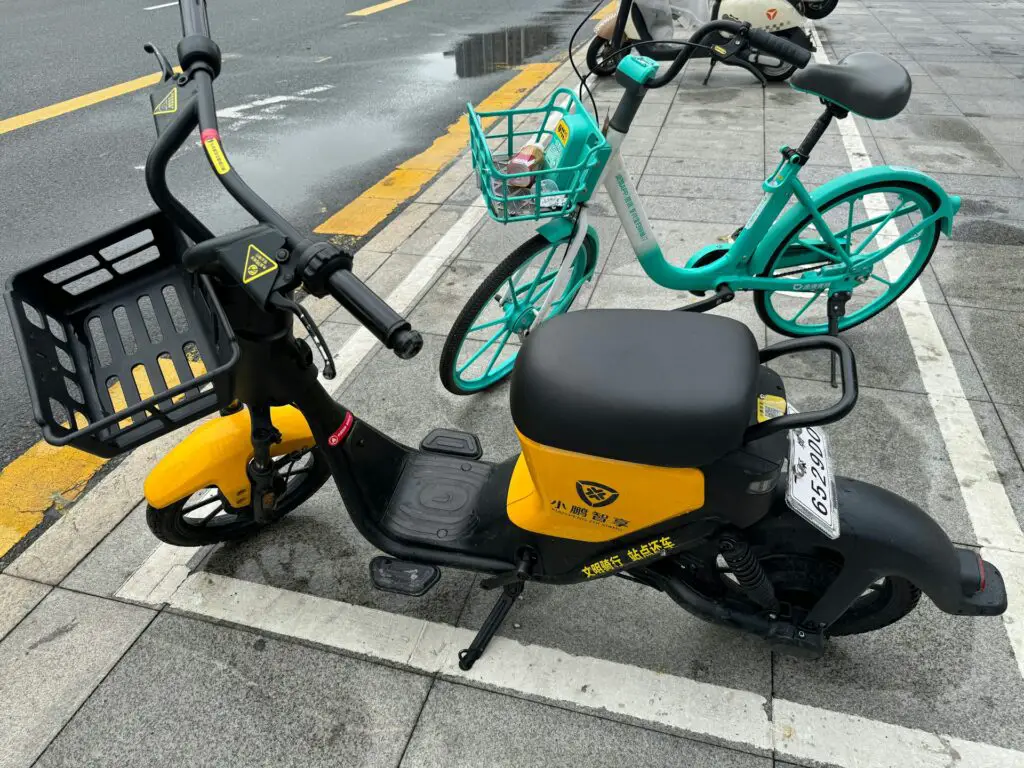What do you look for when buying a used electric scooter? Buying a used electric scooter can be an excellent way to save money while still enjoying the convenience of eco-friendly transportation. However, not all pre-owned scooters are created equal, and purchasing the wrong one can turn into a costly mistake.
This guide will help you navigate the process of buying a used electric scooter, highlighting the key factors to consider and the red flags to watch out for.
1. Check the Scooter’s Battery Condition
The battery is the most critical (and expensive) component of an electric scooter. A worn-out or failing battery can drastically reduce range and performance.
- Test the Range: Ask the seller about the scooter’s current range and compare it to the original manufacturer’s specifications.
- Battery Health: Look for signs of degradation, such as reduced charge retention or slow charging. If possible, test the scooter on a full charge to see how long it lasts.
- Replacement Costs: Research the cost of replacing the battery if the current one shows signs of wear.
2. Inspect the Tires and Wheels
Although the tires and wheels are not as critical as the scooter battery, However, the condition of the tires can reveal a lot about how well the scooter was maintained.
- Air-Filled Tires (Pneumatic): Check for uneven wear, cracks, or punctures. These tires offer a smoother ride but require regular maintenance.
- Solid Tires: While puncture-proof, smaller scooter models come with solid tires that can still wear out or develop cracks over time.
- Alignment: Spin the wheels to ensure they rotate smoothly without wobbling. Misalignment could indicate previous accidents or poor maintenance.
3. Examine the Motor and Performance
The motor is the heart of the electric scooter responsible for repelling both the scooter and should be in good working condition.
- Noise Levels: Ride the scooter to check for unusual noises, grinding, or vibrations from the motor.
- Acceleration and Power: Test the scooter’s acceleration and ability to handle inclines. A weak motor could indicate wear or internal issues.
4. Inspect the Frame and Build Quality
A durable frame ensures your scooter can withstand daily use.
- Cracks and Dents: Look for visible damage on the frame, especially around joints and high-stress areas.
- Rust: Check metal parts for rust, which could compromise structural integrity.
- Folding Mechanism: For those going for smaller models with a folding mechanism, Ensure the folding mechanism locks securely and operates smoothly, as a faulty mechanism can be a safety hazard.
5. Test the Braking System
Reliable brakes are essential for safe riding.
- Electronic Brakes: Check for responsiveness and whether they engage smoothly.
- Disc Brakes: Look for wear on the brake pads and test the stopping distance.
- Foot Brakes: Test for functionality, especially if the scooter relies heavily on this type of braking system.
6. Verify the Lights and Display
Functional lights and a working display panel are crucial for safety and usability.
- Front and Rear Lights: Ensure both works correctly, as faulty lights can reduce visibility and pose a safety risk for night commuters.
- Display Panel: Check that the screen displays accurate speed, range, and battery status.
- Additional Features: Some scooters have extra features like Bluetooth connectivity or mobile app integration—test these if applicable.

7. Assess the Suspension System
If the scooter has suspension, inspect its condition to ensure a smooth ride.
- Check for Wear: Look for leaks or squeaks in the suspension system.
- Test the Ride: Take the scooter over bumpy terrain to see if the suspension absorbs shocks effectively.
8. Inquire About the Charger
The charger is often overlooked but equally important.
- Original Charger: Ensure the scooter comes with the manufacturer’s original charger.
- Charging Time: Ask how long it takes to charge the battery fully and whether the charger has any issues, such as overheating or slow performance.
9. Review Maintenance Records and Usage History
Understanding how the scooter was used and maintained can give insight into its condition.
- Mileage: Check the odometer, if available, for the total miles traveled.
- Service Records: Ask for maintenance logs or details of any repairs performed.
- Previous Use: Scooters used for daily commuting may have more wear than those used occasionally.
10. Consider the Seller’s Reputation
The person selling the scooter can be as important as the scooter itself.
- Private Seller vs. Dealer: Private sellers may offer lower prices, but dealers often provide some level of warranty or after-sales support.
- Transparency: Choose a seller who is upfront about the scooter’s history and any issues.
11. Research the Model’s Reliability
Not all electric scooters are built to last, so it’s worth researching the model you’re considering.
- User Reviews: Look for feedback from other owners of the same model.
- Spare Parts Availability: Ensure replacement parts are readily available, as some older models may be difficult to repair.
- Brand Reputation: Established brands tend to offer better build quality and support.
12. Negotiate the Price
Once you’ve evaluated the scooter, use any flaws or potential repair costs to negotiate a fair price.
- Market Value: Research the average price for the model to ensure you’re getting a good deal.
- Repair Costs: Factor in the cost of replacing parts or performing necessary maintenance.
Final Thoughts
Buying a used electric scooter can be smart and economical, but it requires careful consideration. You can avoid potential pitfalls by thoroughly inspecting the battery, tires, brakes, and most importantly, the electric motor with other key components and finding a reliable ride. With some research and due diligence, you’ll be cruising on your pre-owned scooter with confidence and satisfaction.
Discover more from Chikwem
Subscribe to get the latest posts sent to your email.